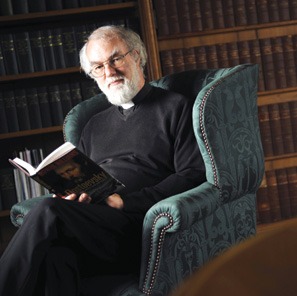"We are not concerned about the cause of a problem, we look after the effects." - Mother Teresa
MOTHER TERESA: The final verdictAroup Chatterjee
Meteor
428 pp
£14.99
Mother Teresa's comment is revealing. Note that she did not say that the causes may be complex, or difficult to tackle and beyond the scope of her Orders work. Rather, they were a matter of no concern to her, the causes of poverty, of overcrowding, of child labour. She was being modest. For people like Mother Teresa, poverty is necessary. The poor, she used to say, are a "gift from God". Like Chatterjee, I find the sentiment obscene.
Aroup Chatterjee's book is not the first to take a stand against the cult of Teresa. Christopher Hitchens' The Missionary Position shattered the innocence of her image. Chatterjee's book, a more substantial treatment from a different perspective, lacks the polish of Hitchens' essay. It is fluently written, but repetitive, poorly edited, and occasionally naïve. Nevertheless The Final Verdict is both compelling and disturbing.
Chatterjee writes from the heart, displaying the complex feelings of the Indian abroad: pain and anger at the maligning of Calcutta for the furtherance of a comforting western myth, and shame at the Indian middle class' servile collusion. Poverty in Calcutta has become a tourist attraction: "Take me to your slums." This in the city of Tagore, a cultural centre traditionally associated with elegance, sophistication, and a lively left-wing intelligentsia.
A Calcuttan born and bred, Chatterjee grew up not far from Mother Teresa's Home for the Dying, oblivious to the miracles happening on his doorstep. Indeed, throughout his youth and adult life in Calcutta, he was scarcely aware of her activities. For Mother Teresa was of little consequence in Calcutta. The chattering classes, in time, aped western enthusiasm. The poor, Chatterjee shows, were largely unaware of her, as she and her nuns were found but rarely in the slums. At her funeral, there had been a plan for her beloved and grateful poor to form part of the cortège. Unfortunately, not enough of the grateful poor could be found.
Chatterjee's researches confirm in depressing detail the now familiar story of neglect, appalling lack of medical care, and emphasis on prayer rather than proper nursing in Mother Teresa's homes. He compares the minute impact of the Missionaries of Charity with the efficient and wide-ranging activities of other charities such as the Ramakrishna Mission and the Child in Need Institute. These groups, a number of them established by Indians long before Mother Teresa's appearance, provide schools, properly equipped hospitals, and training in useful skills; they distribute free condoms and advise on reproductive health. Unlike Mother Teresa's outfit, they encourage slum dwellers to become strong and self-sufficient.
Contraception and abortion were, of course, anathema to Mother Teresa. She would dash off to America or Ireland to lend her support to anti-abortion campaigns. Still, on contraception, she was not averse to natural methods. Chatterjee quotes from her Nobel speech, in which she claimed that in Calcutta, in six years, natural methods had resulted in there being 61,273 fewer babies an astonishing feat of precise calculation! The impracticality of natural methods for those living on the pavement seems to have escaped her.
Chatterjee also discusses the development of the Teresa myth, the funds in the Vatican Bank, the Mother's politics, and her powerful friends. He declares that he does not want to interpret her international activities within a hard left framework. All the same, the Teresa phenomenon can only be understood fully by taking into consideration the web of wealth and power, and the intimate connections between the Vatican and reactionary forces worldwide. Despite her affectations of political transcendence, this account reveals a woman of robust worldly opportunism and considerable political cunning.
Chatterjee is at pains to stress the complexities of the story, the elements of genuine, if misguided, belief and concern. He does not want to paint her as a cardboard -cut-out villainess, and rightly so. But neither was she the paragon of love and piety so frequently depicted. The Final Verdict ends on an oddly uncertain note. Chatterjee, like Hitchens, has testified to the Vatican Committee as a witness against her suitability for canonization; yet he also wonders whether it should matter much who the Catholic Church rewards for services to the firm. Perhaps he should not be unduly concerned. Any illusion of genuine virtue being a requirement for official sainthood must be fading fast in people's minds. The successes of Josemaria Escriva and Pius IX will have seen to that.
Mother Teresa: The Final Verdict is available from Amazon (UK)

